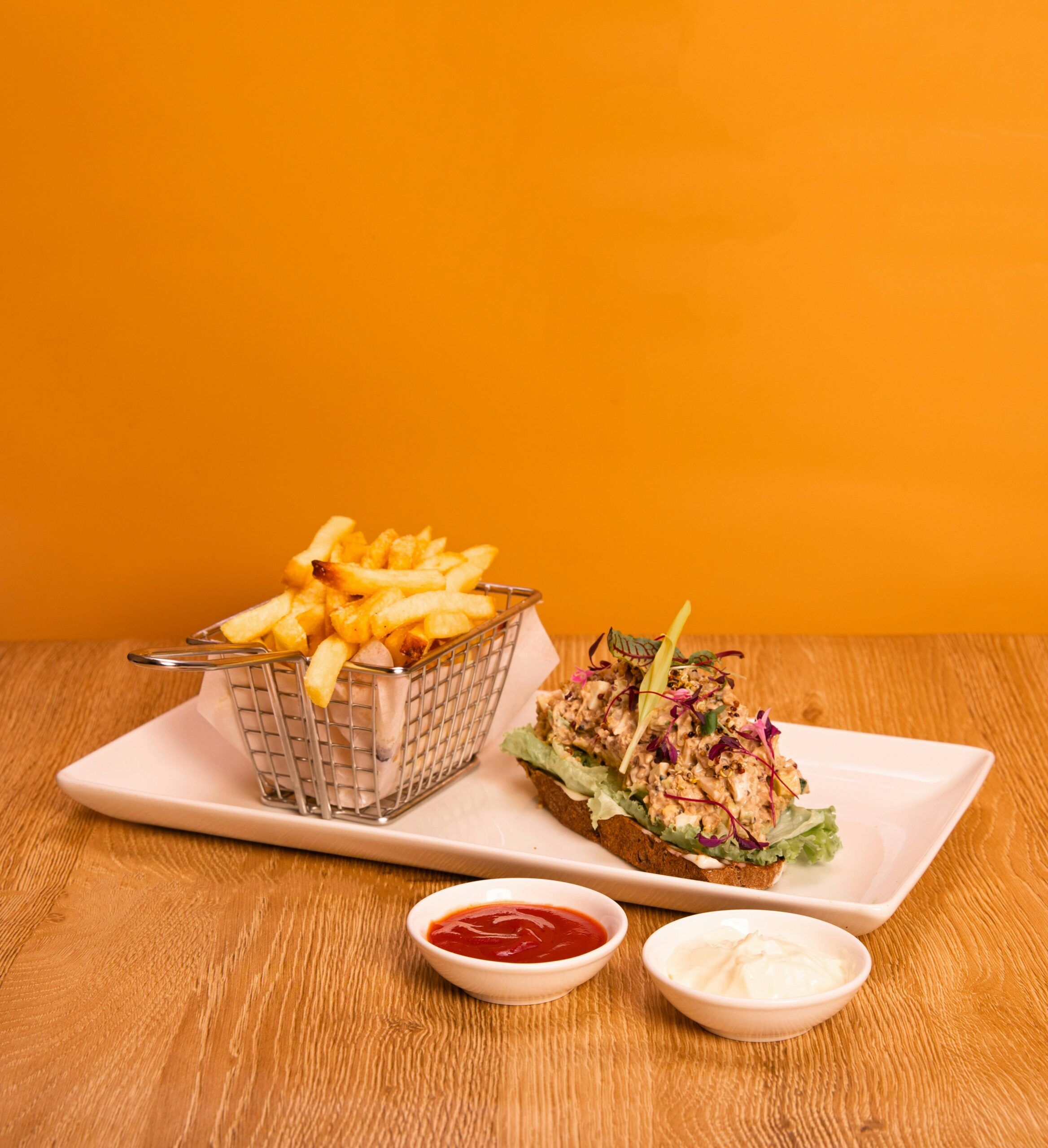- They know their target market and cater to it
- They focus on quality over quantity
- They stay true to their brand and vision
On any given day, diners can be found at independent restaurants across the country. These establishments offer a unique and memorable dining experience, thanks to the hard work of their owners and staff.
As an independent restaurant owner, you likely wear many hats and juggle many responsibilities. There’s a lot on your plate, from menu development and marketing to staffing and finances.
These days independence in the restaurant industry is more important than ever. With big chains taking over, it’s becoming harder and harder for small businesses to compete. But don’t despair—many independent restaurants are thriving, thanks to innovative practices that set them apart from the pack.
For example, successful independent restaurants often focus on providing an exceptional customer experience. They also make a point of using high-quality ingredients and supporting local purveyors.
Despite the challenges, running a successful independent restaurant is possible. By following some best practices, you can set your restaurant up for success.
To help your restaurant stand out from the competition, it’s important to emulate the practices of highly successful independents. Here are 11 common practices of the most successful independent restaurants.
1. They know their target market and cater to it
A highly successful independent restaurant knows its target market and adjusts its offerings to cater to it. For example, if they’re located in a college town, they might focus on providing affordable and hearty meals that appeal to students.
For this reason, it’s important to have a clear understanding of who your target market is and what they’re looking for. Once you know this, you can adjust your menu and marketing efforts accordingly.
Independent restaurants often go the extra mile to ensure their customers have a positive experience. This might include providing a warm and welcoming atmosphere, attentive service, and delicious food.
By focusing on the customer experience, you can repeatedly encourage diners to return to your restaurant.
Here are some tips to improve the customer experience at your restaurant:
- Greet diners as soon as they walk in the door.
- Ensure your waitstaff is appropriately trained and provide them with regular updates on specials, new menu items, etc.
- Encourage feedback from customers and use it to make improvements.
- Say thank you to customers when they leave.
- Don’t forget to consider the little details that can make a big difference, like having fresh flowers on the table or playing relaxing music in the background.
- Smile and be honest at the same time
2. They have a unique selling proposition
What makes your independent restaurant special? What sets it apart from the competition? When developing your unique selling proposition (USP), these are essential questions to answer.
Your USP is what will make customers choose your restaurant over others. It’s important to focus on what makes you different and highlight that in your marketing efforts.
For example, if you focus on using locally sourced ingredients, make sure that’s clear on your website and menu. You could also highlight it in marketing materials and social media posts.
If you’re not sure what your USP is, take some time to brainstorm with your team. Once you better understand what makes your restaurant unique, you can start promoting it to customers.
Some examples of USPs for independent restaurants include:
- Locally sourced ingredients
- A focus on sustainable/ethical cooking practices
- Unique or innovative menu items
- Outstanding customer service
- A beautiful setting or ambiance
3. They are passionate about their work, and it shows in their cooking
Independent restaurants are often run by passionate individuals who care deeply about their work. This passion is evident in the quality of their food and service. Your cooking and service will show if you’re passionate about your restaurant.
Customers will pick up on your enthusiasm and be more likely to return in the future. Moreover, they’ll be more likely to recommend your restaurant to others.
Passion is an essential quality for any successful independent restaurateur. If you’re not passionate about your work, it will be challenging to create a successful business.
Here are some tips to help you show your passion for your work:
- Do your research and constantly strive to improve your skills. (You can try National Restaurant Association statistics)
- Be open to feedback and use it to enhance your cooking.
- Create new dishes that reflect your style.
- Train your staff so they can deliver the same high level of service that you provide.
- Be genuinely friendly and welcoming to customers.
4. They focus on quality over quantity
Independent restaurants often focus on quality over quantity. This means they’re more likely to use fresh, local ingredients and make their dishes from scratch. They’re also more likely to take the time to ensure each dish is cooked to perfection.
While this approach takes more time and effort, it’s worth it when you see the look of satisfaction on your customers’ faces. Moreover, it can help you build a loyal customer base that keeps coming back for more.
If you’re looking to improve the quality of your food, there are a few things you can do:
- Use fresh, local ingredients whenever possible.
- Make dishes from scratch rather than using pre-made mixes or sauces.
- Train your staff to cook each dish properly.
- Pay attention to portion sizes and ensure each dish is hearty but not overly filling.
- Focus on plating and presentation.
- Don’t be afraid to experiment with new ingredients and flavor combinations.
5. They keep their menu simple and seasonal
Independent restaurants often have a limited menu that changes seasonally. This allows them to focus on using the freshest ingredients and creating truly unique dishes. It also makes it easier for customers to decide what they want to order.
If you’re looking to simplify your menu, start by removing any not popular dishes or selling well. Then, focus on creating a few seasonal dishes that will change periodically. You can also offer daily specials to give customers even more reasons to visit your restaurant.
Your menu should be simple but also reflect your USP. For example, if you’re known for using locally sourced ingredients, make sure that’s clear on your menu. You could also highlight it in marketing materials and social media posts.
You can use your menu to upsell customers by offering side dishes or desserts. Upselling is a great way to boost your revenue and keep customers happy.
Here are some tips for a perfect and straightforward menu:
- Focus on simple, flavorful dishes.
- Create a balance of light and hearty dishes.
- Have captivating photos on the menu
- Use seasonal produce to create dishes that reflect the time of year.
- Offer a mix of vegetarian and meat-based dishes.
- Use fresh, in-season ingredients.
- Change your menu regularly to keep customers coming back.
6. They hire passionate people
When hiring staff, independent restaurants look for people who share their passion for food and service. They often take the time to train their staff to deliver the same high level of service that they provide.
If you’re looking to hire passionate staff, start by writing a great job ad. Make sure to highlight your USP and what makes your restaurant management unique. You should also list the qualities you’re looking for in an employee.
When interviewing candidates, be sure to ask questions that will give you a better sense of their passion for food and service.
For example, you could ask them about their favorite restaurants or dishes. You could also ask them to describe when they went above and beyond for a customer.
Your Inbox, Your Rules!
Tailor your newsletter with the topics you're most interested in.
Here are some signs of passionate teammates:
- They have a positive attitude.
- They’re always willing to help.
- They take pride in their work.
- They have a strong work ethic.
- They’re always learning and trying new things.
Passionate staff members are an essential part of any fine dining restaurant. By taking the time to hire great employees, you’ll be able to provide an even better experience for your customers.
7. They make everything in-house, from the sauces to the desserts
In many cases, independent restaurants make everything in-house, from the sauces to the desserts. This allows them to control the quality of their food and ensure that each dish is made with fresh ingredients.
If you’re looking to make more items in-house, start evaluating your current menu. Are there any dishes that could be made from scratch? For example, you could make your own pasta or bread. You could also start making desserts or appetizers from scratch.
Making everything in-house can be time-consuming, but it’s often worth it for the taste and quality of your food. Customers will also appreciate knowing that your dishes are made with fresh, local ingredients.
8. They know how to manage their finances and stay in the black
Independent restaurants have to be very mindful of their finances and cash flow. They often have to make tough decisions to stay in the black.
If you’re looking to improve your financial management, start by evaluating your current expenses. Are there any areas where you could cut back?
For example, you could reduce your food costs by simplifying your menu or negotiating with suppliers. You could also save money on labor by training your staff to do multiple tasks.
It’s also essential to have a clear understanding of your revenue and profits. Be sure to track these numbers regularly to identify any potential problems early on. You’ll be better positioned to manage your finances and keep your restaurant in the black by taking these steps.
9. They stay true to their brand and vision
Your brand is what makes you unique. It’s what sets you apart from the competition. And it’s what customers will remember about your restaurant concept.
Successful independent restaurants stay true to their brand and vision. They don’t try to be everything to everyone. Instead, they focus on providing an excellent experience for their target market.
When creating your brand, start by defining your target market. Who are you trying to attract? What type of experience do you want them to have? Once you have a clear idea of your target market, you can develop your brand.
Here are more steps for creating a solid brand for your successful restaurant business:
- Develop a unique logo, slogan, and color palette
- Create a memorable website and social media presence
- Focus on delivering an exceptional experience
- Constantly innovate and try new things
- Focus on the quality of your food and service and maintain it for the rest of your business
- Stay inspired and motivated
- Create an incredible working experience for your staff
10. They approach their customers individually and offer loyalty programs and bonuses
Independent restaurants often take a personalized approach to customer service. They get to know their customers and offer loyalty programs and bonuses to keep them returning.
You can start personalizing your customer service by training your staff to greet customers by name. You could also ask them about their preferences and what they like to order. This information can help you tailor your loyalty program to each customer.
You could also consider offering discounts or coupons to regular customers. You could even create a VIP program for your best customers. By personalizing your customer service, you’ll be able to build strong relationships with your customers and keep them coming back.
11. They reinvest in their business to continue growing
Successful independent restaurants reinvest in their business to continue growing. This might include opening new locations, expanding their menu, or increasing their marketing budget.
By reinvesting in your business, you’ll be able to keep up with the competition and attract new customers.
It’s also a great way to show your existing customers that you’re committed to providing them with the best possible experience.
If you’re looking to reinvest in your business, keep these in mind;
- Think about what your customers want and need
- Consider what’s working well and what needs improvement
- Look for opportunities to grow your business
- Don’t be afraid to take risks
- Be prepared to make sacrifices
- Have a long-term vision
- Track your progress and celebrate your successes
Orders.co has a simple solution for your independent restaurants to succeed. Restaurant owners can easily manage your restaurant’s online orders with a single device. Give us a try today!
The next time you are looking for ways to improve your restaurant, look at the 11 common practices of highly successful independent restaurants. Implementing even a few of these ideas could make all the difference in your business.
The restaurant industry is highly competitive, but your business can thrive with the right approach and following the best practices of successful independent restaurants.
It will help increase profits and keep customers coming back for more, but it can also set you apart from the competition. Have any of these tips worked well for you in the past? Let us know in the comments below!



